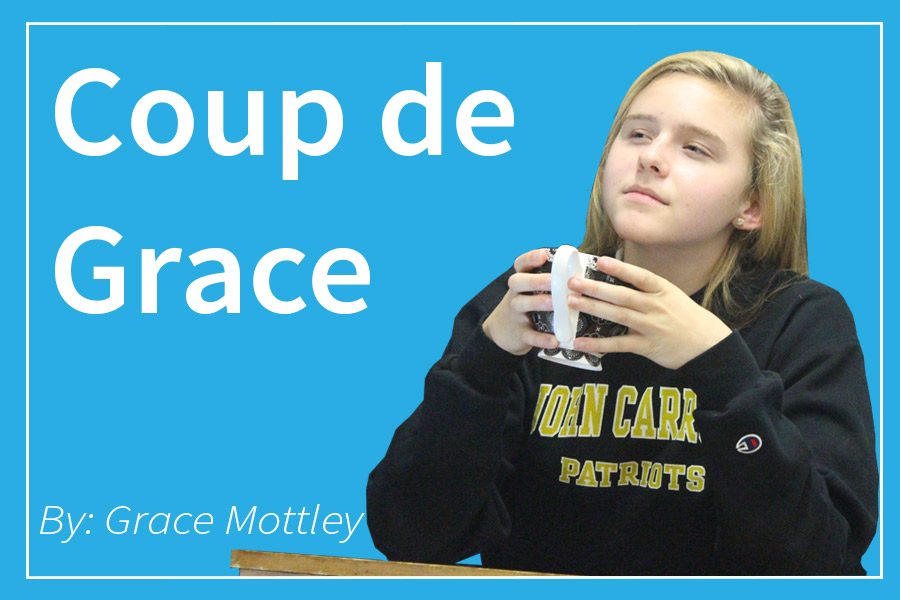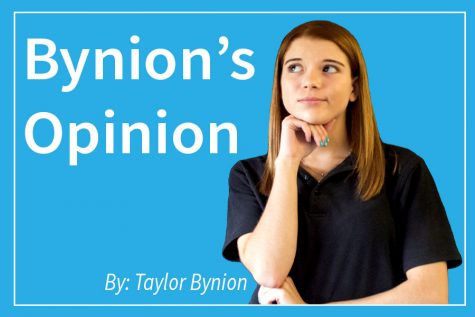Coup de Grace: Move forward but look back
Assignment Chief Grace Mottley attempts to end deteriorating institutions and ideas of our society through a Coup de Grâce, a “decisive blow or finishing act,” as she questions the culture we live in. They say the pen is mightier than the sword, so what better way to change society than writing about it.
History repeats itself. This concept is not foreign to us. It’s understandable, as human nature never really changes but merely finds new ways to express itself. While the same events may not repeat themselves perfectly, similar events will occur that parallel those of the past.
As a result, an understanding, appreciation, and respect for history is not only appropriate but also necessary. As philosopher George Santayana once said, “those who forget history are condemned to repeat it.”
However, we need to appreciate our past if we want to successfully and effectively approach our future. When properly appreciated, we can apply a new lens to our own situation. For example, when Sergeant Baxter came and talked to the school about segregation in Harford County, I was struck by how accepting our community was of racial discrimination during his youth. When his story was put in perspective, I realized that discrimination in any form often goes unnoticed initially, and that we have to listen to those who experience it and speak out against it.
When given an opportunity to learn from the past and from our mistakes, like the examples of segregation provided by the assembly with Sergeant Baxter, we are given the opportunity to prevent those mistakes from happening again. We are given the chance to find what circumstances from the past are parallel to ours and how we can better handle the situation.
When the seniors visited the Holocaust Memorial Museum in Washington D.C., we were given one such opportunity, and the experience helped refocus my thoughts towards current issues. I learned of the story of the MS St. Louis, a ship carrying over 900 Jewish refugees who were attempting to escape Nazi persecution. They were continually denied access to refuge from other countries, and when the ship was forced to return to Germany, almost half of its inhabitants died in the Holocaust.
Acknowledging this horrific part of our past made me reconsider our current refugee situation. And even if applying this knowledge of the past doesn’t change your opinion, it allows you to form a more informed and understood opinion.
Remembering the past not only gives us a chance to prevent mistakes from repeating themselves, but it also gives us a sense of gratitude. It serves as a reminder to continue to uphold our country’s dedication to fight for democracy, equality, freedom, justice, and protection of civil liberties that millions of protesters have fought for over the centuries.
JC provides students with ample opportunities to remember and appreciate history, and we can take advantage of them. We must try and apply the events we learn about in our social studies classes to our lives, but we must also appreciate the events JC provides for us, including assemblies and the trip to the Holocaust Memorial Museum.
If we focus on the work our predecessors have done in the past and the sacrifices they’ve made, it serves as a humbling reminder that we need to work to continue the fight to protect civil liberties, equality, and freedom that our forefathers started.
Grace Mottley is the Assignment Chief for The Patriot and jcpatriot.com.








